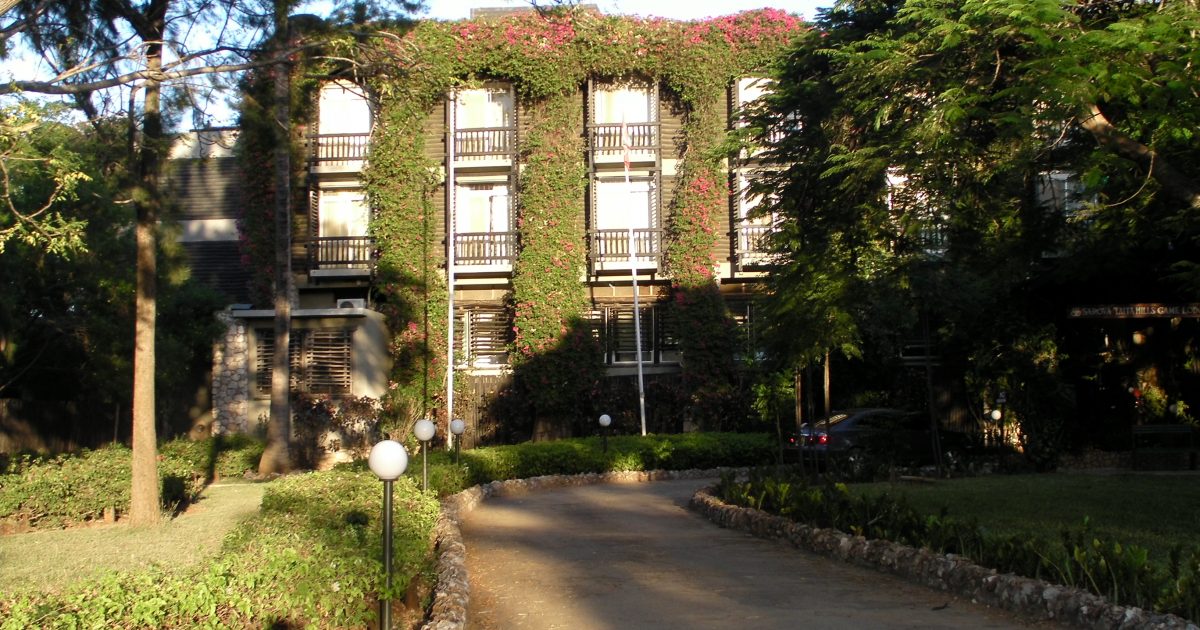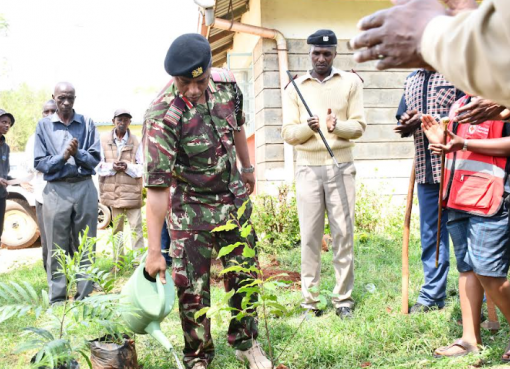It is end of an era after the iconic Taita-Hills and Salt-Lick Games Lodges in Tsavo National Park became the first high-profile casualties of economic slowdown in tourism industry in Kenya following Sarova Group of Hotels’ announcement to terminate the contract of managing the two properties.
The twin lodges are located within the sprawling 28-000 acres Taita-Hills Sanctuary in Mwatate sub-county along the Voi-Holili Highway and have been under the management of Sarova since 2007.

Sarova’s Managing Director Jimi Kariuki said the termination of the management of the two world-class facilities will take effect from July 1 this year.
“From that date, they will no longer be operated under the Sarova portfolio,” reads the communication announcing the termination letter dated Wednesday May 6.
The move has been interpreted as effort by Sarova Hotels to mitigate against the adverse effects of Covid-19 which continue to devastate tourism industry in Kenya. As expected, the news have sent shockwaves through the tour industry and players in the region. Anxieties are intensifying over the possible job losses even as a new management is expected to take over the property.
The two lodges are rated amongst the top hotels in Tsavo and are ranked amongst the best in global hotel portfolios largely due to their world-class services, breath-taking sceneries and legendary hospitality.
Over the years, several key international events have been hosted in Taita Hill sanctuary grounds. The most memorable events include the centenary celebrations of World War 1 in 2015 and commemoration of the end of First World War in 2018. High profile dignitaries including diplomats like Nic Hailey, UK High Commissioner, German Ambassador Annette Gunther and Australian High Commissioner Jonathan Ball attended the commemoration ceremonies.
Due to her architectural uniqueness, Taita Salt-lick Game Lodge, with her signature multiple rounded rooms perched on top of concrete pillars, is one of the most photographed game facility in the world. Taita Hills Game Lodge has also carved a niche for herself as a repository of rare artefacts from the World-War 1 campaign, a part of which was fought in the lodge’s grounds. These artefacts that are displayed in a mini-museum inside the cavernous Taita Hills hall include rifles, mortar shells, coins, pick axes, shovels, army uniforms and a mode of prototype aircraft used in that war.
Before Sarova took over, the two lodges were managed by Hilton Hotels. Under Sarova, the lodges have soared over the years and gained international reputation which has seen thousands of tourists flock annually for exotic game drives and wild bush dinner. The success is largely attributed to extensive marketing strategy by tour companies who ferried in tourist from across the globe.

Known for her spectacular bush safaris, the lodges have lately been aggressively promoting battlefield tourism; a new tour package that involves physical tours to the World War 1 battle ground sites and commonwealth and Indian war graves where British, Australian and Indian soldiers are buried. The package also includes revisiting detailed history of role Africans played in the World War 1 East Africa Campaign.
During the commemoration of end of World War 1 in 2018, Sarova Taita Hills Lodge erected the only known monument honoring unrecognized thousands of Africans soldiers and porters who died during the war. The hotel said the monument acknowledges the vital role they played of carrying food and weapon supplies to frontline troops during that bloody campaign.
Other sites with historical significance to the first word war located inside the Taita-Hills sanctuary include Mwashoti Forte, a stronghold used by British Soldier as an Observatory Point and Mile-27 bridge; a vital link along the old Voi-Taveta railway for supplies.
Mr. Willy Mwadilo, a veteran hotelier and the manager of the two lodges, however says the lodges will still be open for business and will operate normally despite the change in management.
He added that over 103 workers in the two facilities still have their contractual agreements with their employer.
“The lodges will be operational as the new management prepares to take over,” says Mwadilo who is also the chairperson for hoteliers in Tsavo and Amboseli.
While it is not clear why the Sarova decided to terminate the contract with the two hotels, most public facts point to financial stress exerted from Covid-19 effects. Since the outbreak of pandemic in the country, tourist hotels and game lodges have been hard hit with virtually all establishments reporting zero bookings.
With no end in sight for containment and elimination of the threat of coronavirus, there are fears of other major companies managing hotels in the region shedding off some of their property. Maintaining world-class standards for such lodges is a capital intensive venture. At a time when tourism sector has fallen into comatose, hotels are likely to initiate radical cost-cutting measures.
“There is no income from investments for now so it makes business sense to lay back and let some go,” says Mr. John Mlamba, a director of Management of Arid Zones In Development Options (MAZIDO) a wildlife conservation group operating in Tsavo. He further opines that Sarova’s move might hint at a possibility that tourism sector in Kenya might take long to recover.
“Sarova is a serious player in this industry. They don’t let go premium property easily unless they feel the downturn in this sector might be around for a long time,” he added.
However, other sources say franchise might have become increasingly uneasy over the prolonged wrangles between Taita Hills sanctuary and local residents over land ownership. Over the years, there have been rows between villagers of Alia, Kenya Wildlife Service and Taita Hills Sanctuary over land and fencing.
Mr. Gamaliel Mwangi, the coordinator of Mwabu, a Mwatate-based local land rights group, says the land wrangles are far from over.
“The residents have been agitating for their land rights and often accuse the sanctuary of taking part of the ancestral lands,” says the activist. Already, a section of residents have sued KWS for allegedly erecting an electric fence on private land. The fence separates the community from the sanctuary and the ranches.
Nevertheless, Sarova has promised to honor all commitments and contractual agreements in full and pledged to ensure seamless transition between them and the lodge owners.
By Wagema Mwangi




